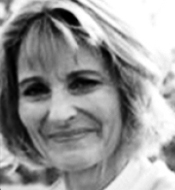Janet Peacock
1. How did you get interested in biostatistics?
It was all down to an amazing applied statistics lecturer, Roger Stern, Reading! I was on a maths degree course when we all took a module in applied statistics in the summer term of the first year. As a result of the way he brought statistics to life, I switched from a straight maths degree to joint Maths and Statistics and then went onto a MSc in medical statistics.
2. Who has influenced you most up to now?
It has to be Martin Bland, York. I worked with Martin for many years at St George’s University of London and he supervised my PhD in applied statistics. He was always so encouraging, so available and pushed and stretched me. He taught me much of what I now know in terms of content, and ways to think as a statistician. I owe Martin so much.
3. What have been your career highlights and challenges?
I think highlights include getting my PhD in 1989 which I did with small children and a very supportive husband. The other main highlights have been publishing my 3 applied statistics books with friends and family.
Challenges – there are so many including finding time to do ‘own’ research as well as collaborative work, learning to be a manager and handle finances and business plans, and navigating politics.
4. If you could change one thing in the world of health research, what would it be?
I would wave a magic wand to ensure that all new medical studies and research enterprises automatically value and consult statisticians at the outset.
5. What advice would you give to someone considering statistics as a career?
Medical Statistics is a career where we use intellectual, negotiating and communication skills to ultimately benefit patients. If this sounds fun, do it.
6. What do you do every day as a statistician? Is there a typical day? If not give a flavour of what you did in a couple of days this week
It’s very varied including research activities such as doing/reviewing statistical analyses/reports, meeting statistical colleagues and/or research collaborators to discuss new and ongoing studies, planning/delivering teaching, management and budgeting.
7. What do you find most interesting in the job?
Working with clinical colleagues to do good research that has the potential to improve patient care.
8. What motivates you as a statistician?
I simply enjoy it.
9. Do you ever have a day when you don’t learn anything?
I can’t remember one.
10. What are the type of skills you use in your job?
The main one is ‘Statistical Thinking’ which is hard to define but you just know by a combination of training and experience what questions to ask and what to do in a variety of research situations.
11. Are there different types of medical statistician? What sort of statistician are you?
I’m an applied medical statistician.

